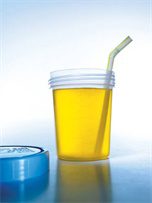Is drinking your own urine truly beneficial for health as its enthusiasts claim? A few weeks ago, an English mountaineer named Paul Beck was found exhausted in a mountainous area in Spain, having survived by drinking his own urine. “I had to drink it five times in total to avoid dehydration,” he explained.
 |
Urine |
It is acknowledged that drinking one’s own urine can be a survival factor in extreme situations. However, is it really beneficial for health?
The practice of urine therapy (urinotherapy) has existed since ancient times. Contrary to common belief, urine is not considered a waste product of the body but rather a filtered substance from the blood. Blood contains many nutrients, which are filtered through the liver to remove toxins. The blood is then refined again through the kidneys, where unnecessary compounds are eliminated. Thus, urine is said to be highly “sterilized” (stéréliséc) in healthy individuals, consisting of 90% water and 5% other substances, including vitamins, minerals, proteins, and other compounds (such as urea and uric acid), as well as waste products from metabolism (métabolisme).
Supporters of urine therapy believe that this “cocktail” can cure ailments ranging from the common cold to cancer, providing energy, stimulation, and enhancing sexual function. This treatment method is quite popular in China, India, Southeast Asia, and parts of the eastern coastal regions of America, where people have established daily dosages. Urine can also be used in drops for the eyes, ears, as mouthwash, or in bathwater. However, the benefits are not clearly evident, and many experts have expressed skepticism… So, can urine truly save lives for those lost at sea or on icy mountain peaks?
Experts have warned that when concentrated, salts require even more water to be expelled. Therefore, it is clear that drinking one’s own urine cannot compensate for lost water; on the contrary, it can lead to further dehydration.
“There is no benefit to drinking your own urine; I believe it is more harmful,” stated Dr. Helen Andrews of the Association of Hygiene and Sanitation – “Once ingested, urine becomes more concentrated, potentially damaging the intestines. If someone is lost in the wilderness, the body needs to retain water as long as possible. Drinking urine would be akin to drinking seawater!”
Luong Vinh Khang

















































